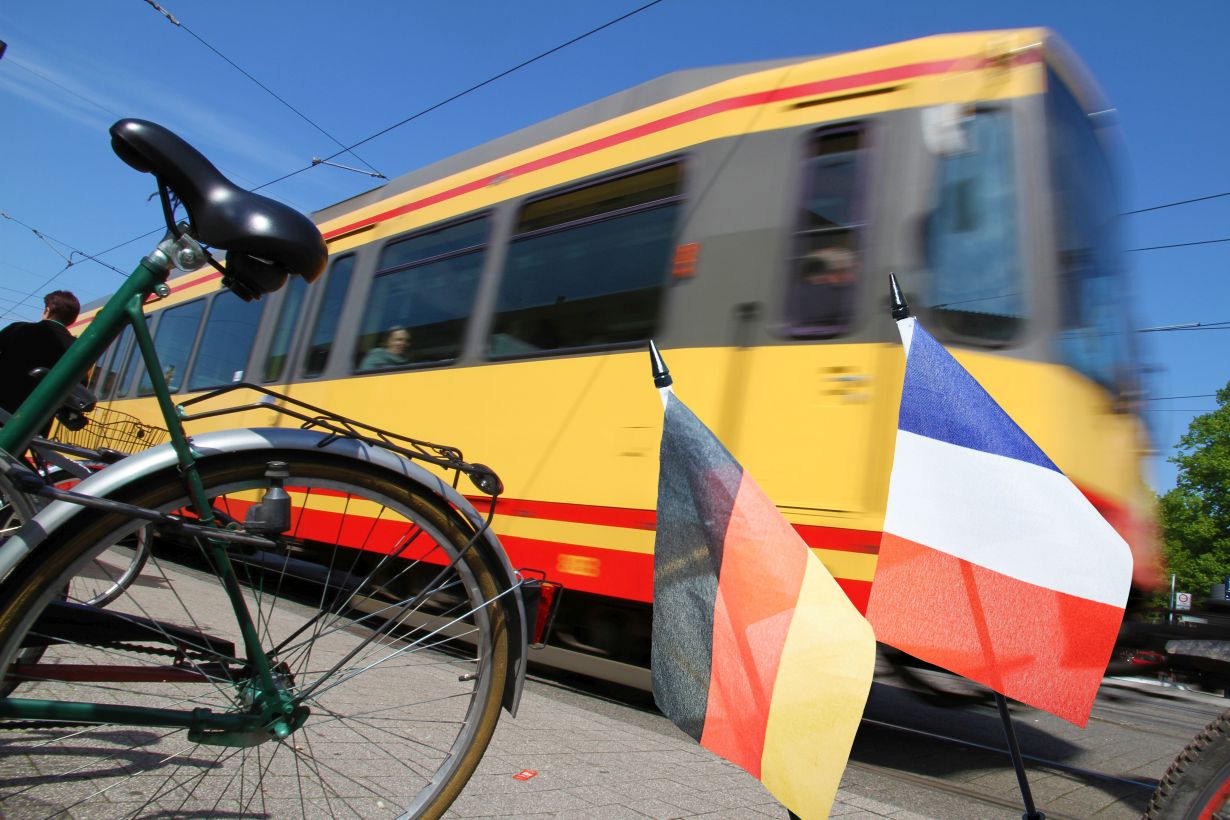The recently launched project “SuMo-Rhine – Förderung der nachhaltigen Mobilität in der Oberrheinregion” (support of sustainable mobility in the Upper Rhine region) is aimed at supporting cities and municipalities in establishing and extending sustainable transportation systems across borders. Scientists from both sides of the river Rhine plan to develop strategies, concepts, and instruments for this purpose. Coordinator and leading partner of the project that is scheduled for a duration of three years and funded by the EU with EUR 1.36 million is the French-German Institute for Environmental Research of Karlsruhe Institute of Technology (KIT).
In view of high greenhouse gas emissions by road traffic and rapidly developing technical and social innovations, such as electric mobility, autonomous driving, and car sharing, it is largely agreed that today’s transportation systems have to be transformed and made sustainable. “Much less clear are the factors determining the sustainability of mobility systems and the concrete measures that help improve it,” says Professor Wolf Fichtner, Head of KIT’s French-German Institute for Environmental Research (DFIU). In the trinational Upper Rhine Metropolitan Region, the situation is aggravated by the fact that conceptions of future mobility systems vary in the different countries and establishment of an area-wide transportation concept is impaired by different cultural and political framework conditions.
This is the starting point of the new SuMo-Rhine project. “Sustainable mobility concepts must not stop at national borders,” says Dr. Patrick Jochem of DFIU. “With SuMo-Rhine, the Upper Rhine region may become a blueprint for mobility development in other border regions,” the energy economist continues.
The project is aimed at comprehensively analyzing and assessing the existing cross-border transportation systems, with the agglomerations of Strasbourg and Lörrach being used as examples. This is to give rise to a new type of “decision support system.” “This system may be considered the cornerstone for the transformation of the mobility system,” says Project Head Dr. Jérémy Rimbon, DFIU. Via a web application, the system will provide access to measurable indicators of sustainable mobility. In this way, cities and municipalities, transportation authorities, and transportation services will be enabled to identify improvement potentials of transportation services much better than before. As a result, environmental pollution will be reduced and the share of alternative means of transportation will be increased.
Jörg Lutz, Mayor of the city of Lörrach, explains the reason why the city participates in the project: “We expect cooperation with the universities to result in new findings for future mobility in our city. In particular, we hope to find out how citizens and cross-border commuters can organize mobility in a flexible and environmentally compatible way.” In addition, KIT scientists and their project partners expect SuMo-Rhine to initiate an intensive cross-border dialog and knowledge transfer between the cities and municipalities involved.
Basic Data on the SuMo-Rhine Project
The SuMo-Rhine project is coordinated by the French-German Institute for Environmental Research (DFIU) of Karlsruhe Institute of Technology (KIT). It started in July 2018 and has a duration until June 2021. The project consortium consists of the following members: Institute for Economic Policy Research (KIT), Centre for Renewable Energy (University of Freiburg), European College of Human Ecology, Institute for Environmental Sciences (University of Koblenz-Landau), Laboratoire Image, Ville, Environnement (University of Strasbourg and Centre National de la Recherche Scientifique), Institut de Recherche en Informatique, Mathématiques, Automatique et Signal (University of the Upper Alsace), Chair “Mobilités Métropolitaines Innovantes“ (École Nationale Supérieure d'Architecture de Strasbourg), city of Lörrach. The project is funded with a total of EUR 1.36 million by the European Union from the European Regional Development Fund (ERDF).
French-German Institute for Environmental Research
The French-German Institute for Environmental Research (DFIU) of KIT was established in 1991 as a research institution with a mandate to sustain the widespread wish of France and Germany for strengthening cross-border scientific cooperation in the field of environmental research.
Being “The University in the Helmholtz Association”, KIT creates and imparts knowledge for the society and the environment. It is the objective to make significant contributions to the global challenges in the fields of energy, mobility, and information. For this, about 10,000 employees cooperate in a broad range of disciplines in natural sciences, engineering sciences, economics, and the humanities and social sciences. KIT prepares its 22,800 students for responsible tasks in society, industry, and science by offering research-based study programs. Innovation efforts at KIT build a bridge between important scientific findings and their application for the benefit of society, economic prosperity, and the preservation of our natural basis of life. KIT is one of the German universities of excellence.

